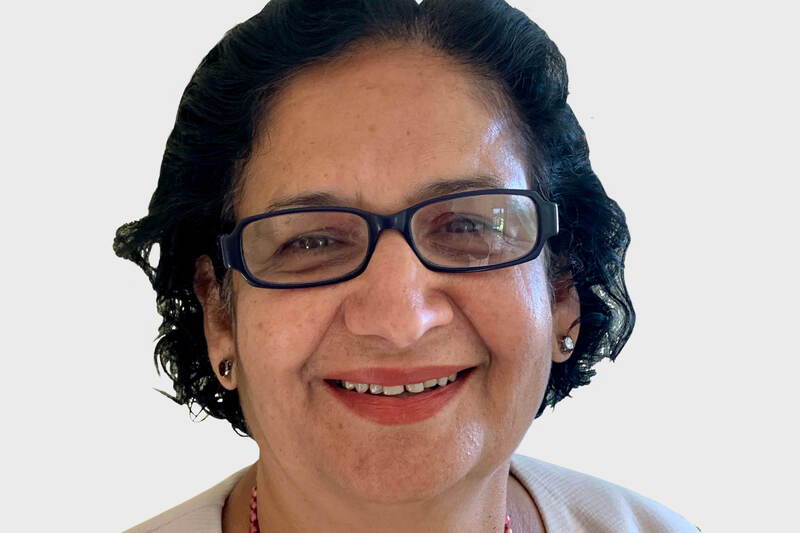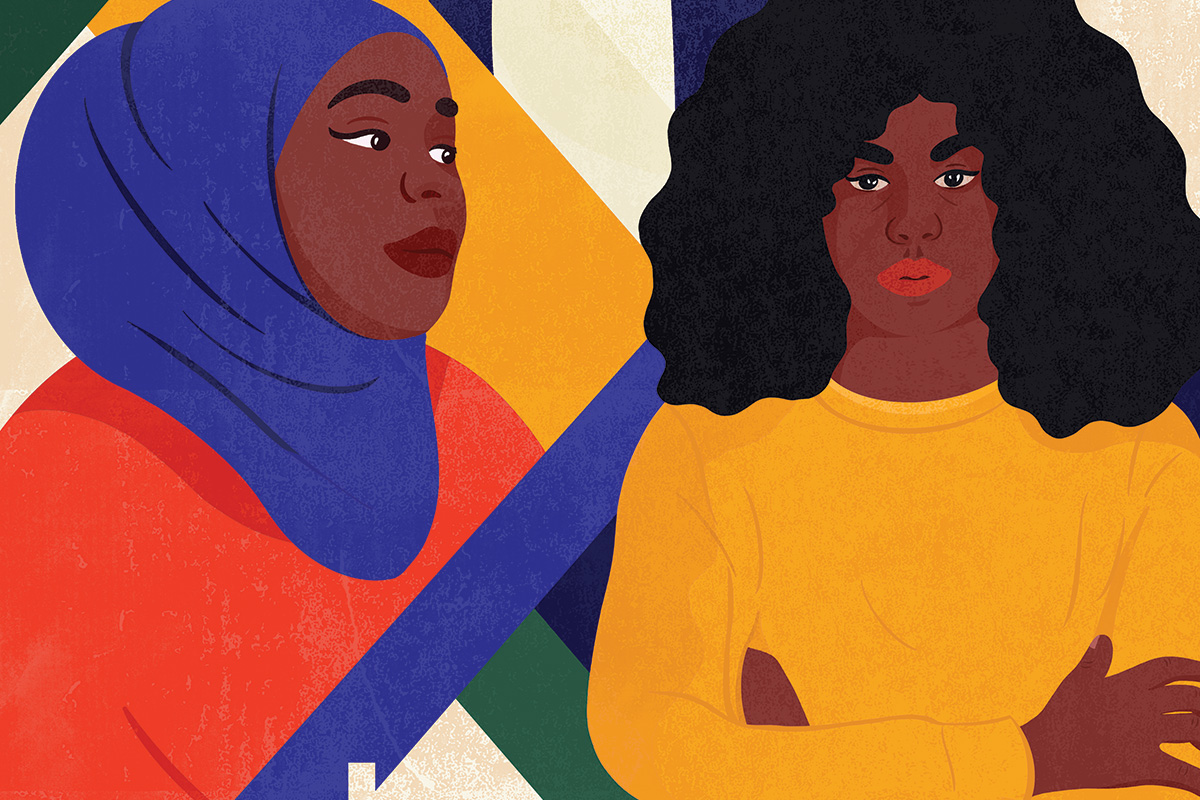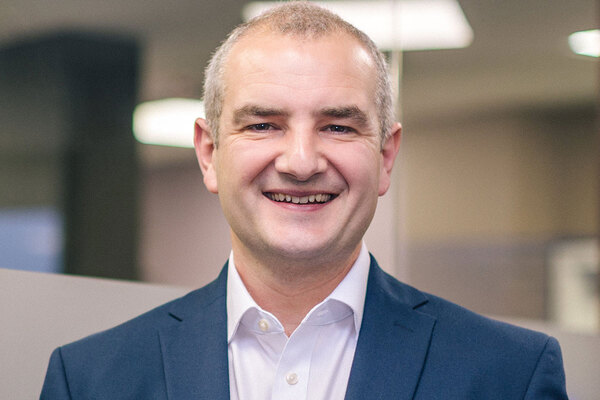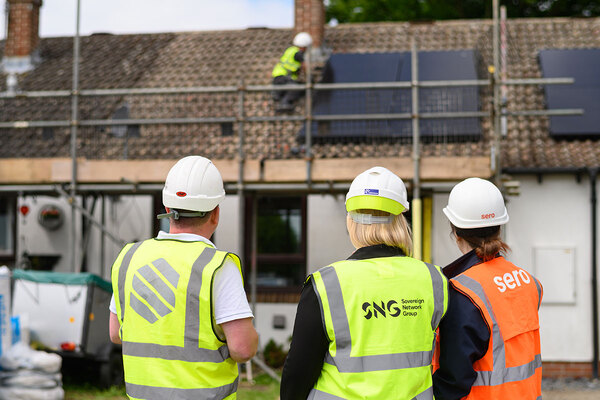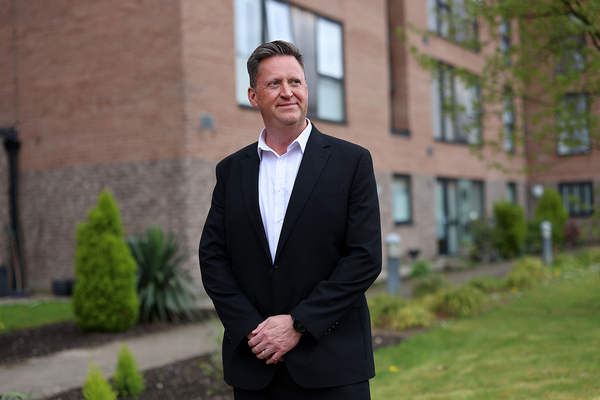You are viewing 1 of your 1 free articles
How to talk about race
One of the main actions that social landlords took in response to Black Lives Matter was simply to talk to Black, Asian and minority ethnic staff about their experiences. Jess McCabe looks into what approaches different organisations have taken. Illustration by Sophie Melissa
Last summer, it seemed like the whole world was caught up in the wave of change that Black Lives Matter protests started – UK housing included.
Dozens of landlords put out statements to address racism in direct response. Although police brutality in the US might seem distant from being a social landlord in the UK, for many Black staff it was personal.
“I have cried and sobbed over the past few weeks as it doesn’t just happen in America, it happens here as well. I am the mother of two Black men and I’ve always known that they will experience things in their lives that their non-Black or minority ethnic counterparts will never experience,” said Dorothy Smith, who is neighbourhood team manager at PA Housing, as part of the 22,733-home landlord’s statement on BLM at the time.
“This is a time to rally round and have open and honest discussions, and demonstrate our commitment to equality, diversity and the inclusion of all PA staff and communities using our services,” she continued.
PA Housing was not the only landlord to start a conversation about race.
Inside Housing wrote to 100 associations across the UK to find out what actions they have taken since those BLM statements were made, and 23 responded with details about what they have done so far. The vast majority have set up a process to have a conversation about race within the organisation.
So what does that conversation look like? What can the sector learn from these conversations? And can this be facilitated in a way that helps staff and organisations embed anti-racism – while acknowledging that these conversations may well be traumatic for staff?
“For me, the last few months have been painful at times – but they’ve also made me more determined to do what I can to make the situation better, starting by talking more openly with my colleagues about issues surrounding race”
Take the example of Catalyst: the association held five ‘listening sessions’. Two of them were open to all staff to discuss diversity and inclusion, two were open to Black colleagues to “understand their lived experience within Catalyst”, and one was for all Black, Asian and ethnic minority staff to share their experiences in working for the association. About 40 staff attended the sessions, which were all designed to be a confidential and safe space.
Hyde Housing set up sessions on Teams, facilitated by an external diversity advisor. The association, which has 49,411 homes, told us that more than 100 Black, Asian and minority ethnic staff attended, with the sessions being “an opportunity and safe space for people to share their views on diversity at Hyde, as well as their experiences on racial discrimination”.
“Creating a welcoming, truly diverse organisation actually needs to look at the white culture that exists within these organisations and how this has the potential to exclude those from other backgrounds”
One important takeaway is that landlords need to ensure that conversations actually lead to change.
“The accountability framework is as important as the initiatives developed. A key question that should be driving the whole organisation is what does success looks like?” notes Olu Olanrewaju, a co-founder of Leadership 2025.
This is especially important as many Black staff will have seen various diversity initiatives come and go before. “In my experience, scepticism – or dare I say cynicism – premised on failed past organisational attempts to address this wretched issue, compounds the negative experience of Black staff. I am not sure if landlords truly appreciate that in some cases, Black staff do feel betrayed and landlords are operating in a low-trust environment,” he adds.
Broadening the conversation
A number of landlords have told us that in response to Black Lives Matter they have embarked on a broader assessment of their approach to diversity and inclusion. Fairly typical of this approach is One Manchester. Anna Bishop, the association’s executive director of customers and communities, explains: “We have created Inc, a group of colleagues who meet regularly to discuss their experiences of delivering services and being an employee of One Manchester, which allows us to evaluate our role as an employer and as a service provider.
Housing Solutions, meanwhile, has set up “an inclusion champions group which is committed to the promotion of equality and would proactively support our values. The group has been supported by chief executive, Orla Gallagher”.
As Ms Smith at PA says: “We have a responsibility to ensure staff feel safe sharing frank and honest reflections without fear of recrimination. At PA Housing we have found setting up listening events to be really helpful here.”
Sovereign, for example, tells us that “a group of employees met in June to share their stories of working at Sovereign. In July that group formed the Caribbean, Asian and African Network (CAAN)”. CAAN then helped shape a race action plan for the 59,517-home association. The landlord has assigned its chief financial officer, Tracey Barnes, as the ‘sponsor’ for this programme at executive board level, and CAAN members now meet with her once a month.
Not all of the sessions focus on the experiences of Black staff and racism. Cym D’Souza, chief executive of Arawak Walton and chair of BME National, points out: “Creating a welcoming, truly diverse organisation actually needs to look at the white culture that exists within these organisations and how this has the potential to exclude those from other backgrounds. So my view is that this is about organisations challenging their own cultures and how inclusive they are, rather than seeking the views of minority ethnic staff, LGBTQ+ staff or staff with disabilities.”
At PA, Ms Smith has held weekly 15-minute Zoom sessions, open to all colleagues, to address white privilege. “The sessions are interactive workshops that are open to all, and people are given a series of everyday scenarios and asked to hold up all their hands and put a finger down if they have experienced any of the situations described,” she explains.
“For example, put a finger down if you have ever been verbally abused due to your race; and put a finger down if you have ever been stopped or detained by the police for no clear reason. The skin colour of the participants with the least fingers still waving in the air by the end of the session demonstrates how different the experiences of Black and minority ethnic and white colleagues often are.
Fast forward to February 2021, and Ms Smith is still determined that talking things out is the way to go.
“For me, the last few months have been painful at times – but they’ve also made me more determined to do what I can to make the situation better, starting by talking more openly with my colleagues about issues surrounding race,” she says.
The proof of the pudding, though, will be in what changes come next.
As Steve Douglas, chief executive of St Mungo’s, says: “We know that success is when our organisation fully reflects the diversity of the clients we work with and the communities where we work, at all levels of the organisation.”
What else landlords are doing
We don’t have space to include all approaches landlords told us about here, but some examples include:
- Sovereign has created a ‘Race Action Plan’, setting out the actions and outcomes it wanted to see over the next 12 months if it was to make meaningful change.
- Jigsaw Homes conducted a survey, responded to by 422 employees, which found that 20 people had seen some form of racism in the workplace.
- Anchor Hanover chief executive Jane Ashcroft has been ‘reverse mentored’ by Teagan Robinson, an internal recruiter at the care specialist and also co-chair of its network for Black, Asian and ethnic minority employees, called embRACE. This year, this is being rolled out to the whole senior leadership team. Optivo’s CEO has also been reverse mentored by the chair of its BAME group.
- Publication of data on the ethnicity pay gap – associations doing this include EMH Group, One Manchester, Jigsaw and Vivid Homes.
- Training – EMH has mandatory unconscious bias training, St Mungo’s has e-learning about inclusive workplaces.
- A review of recruitment policies, and adoption of the Rooney Rule, which means that at least one Black, Asian or minority ethnic candidate is interviewed. EMH and Catalyst are also adopting this approach.
- Notting Hill Genesis has signed up to the CBI’s ‘Change the Race Ratio’ pledge to improve representation of BAME people on its board and in senior roles
- Changes to housing provision and services – Bruce Moore, chief executive of Housing 21, says that of the 800 homes a year that the landlord builds, it now has a target that at least 10% will be in areas where 30% of the population is from a Black, Asian or minority ethnic background.
Sign up to our Best of In-Depth newsletter
We have recently relaunched our weekly Long Read newsletter as Best of In-Depth. The idea is to bring you a shorter selection of the very best analysis and comment we are publishing each week.
Already have an account? Click here to manage your newsletters.
Related stories


